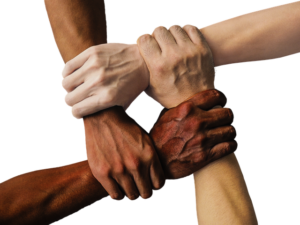What Values Do We Teach at Greystone House?
At Greystone House Montessori Schools, we are built on the values that we want for our own children. But what does that mean for you and your family? Below is a series of articles we have put together that explain our values, how we reinforce them in the schools, and what you can do as parents to ensure your children are adopting and exercising them daily.

Values in Action… Or Is It Inaction?
The word “values” can be difficult to define with absolute clarity. At their core though values are the beliefs put in action that help inform our path on a daily basis as well as enable others to understand who we are. When we internalize a value it actually becomes a part of who we are. An internalized value exerts itself without being called upon to do so.

Collaboration
Collaboration is particularly critical as a value at Greystone House because it is one of the core values that lead to our founding 36 years ago. At our core we consider that one of our primary purposes is to serve as parenting partners for the families that walk through our doors. We are working parents ourselves and we know that it is not easy.

Wisdom
Wisdom is a value that it can be hard to get a grip on. We all have lightbulb moments where we suddenly realize something important. The futility of a certain action, a better way to accomplish a goal, a realization that maybe others matter just as much as we do, or even a moment of quiet reflection where we realize we will never have it all figured out. These moments are frequently the foundation of our personal growth and ultimately help us make better judgments and decisions.

Frugality
Of all of the values we emphasize at Greystone House, frugality is perhaps the most at odds with our culture. In a day and age where we are pelted with ads and messages to buy more, many of which we do not even consciously register, the idea of balancing our inputs and outputs can seem quite odd. But ultimately, the payoff of a frugal life is the freedom to take advantage of more choices while defining our path in life.

Humility
Of all of the dangers that social media presents to children, perhaps the worst is the unrealistically inflated sense of self that the culture of likes conveys. The ease with which the same machinery can crush the ego of those who do not yet have the life experience to contextualize what they are experiencing is equally appalling. The persistent forces that convey the message that our worth is defined by what our group believes is incredibly destructive.

Self-Reliance
If you scroll back to the first article that launched this series you might notice the emphasis we place around responsibility. So much so that three of our values represent three different key tenets of responsibility. Responsibility itself, leadership, and this week’s value – self-reliance. A critical aspect we like to point out when it comes to the last item on the list is that Montessori doesn’t just teach self-reliance as a concept, but rather it is at the very core of the method.

Justice
When adults have six definitions for a word it is a foregone conclusion that it is not easily definable to young children. But thankfully, justice as we use it is very demonstrable. As we use the term, we are referring to the moral principle that emphasizes objective evaluation and equal, fair treatment of others.

Leadership
Our series on values started with an overview. In that overview we mentioned we were adding in a new value and breaking off another. We felt that these new values

Responsibility
Whether talking about our leaders and their responsibility to govern fairly and within the bounds of their defined power or of ourselves and our responsibility to accept the consequences of our actions and reactions, this concept separates adults from children and commoners from despots. But the thing is, there is no switch that flips.

Honor
Honor means we possess the traits of honesty, fairness and integrity. These are high goals to be sure. They are truly challenging to exhibit consistently as we are all flawed human beings. But somewhere along the line striving to be honorable went from being required if you were to be admired to being seen by many as an impossibility and thus not even worth working toward. Cynicism not only crept in; it took over.

Peace
While she is remembered for the innovative and lasting education method that bears her name, Maria Montessori was much more. She was a physician, a scientist, a tireless activist for women’s rights, and an advocate for peace. To Dr. Montessori, the hope for a true and lasting peace was tied up in the education of children. A moral education focused on a respect for diversity, citizenship and acceptance of personal responsibility was at the center of her hope for the future.

Courage
Courage is a moral strength. It allows us to move forward in the face of fear, challenges and even real danger. We say that those with courage are brave. But

Kindness and Compassion
Compassion, which differs from empathy, is defined as a consciousness of the distress and suffering of others that drives a sympathetic response to help alleviate it. There is a growing body of evidence that compassion is in many ways an innate instinct rather than a learned value and it appears in varying degrees depending on the person. We see this quite strongly in some children at school where they are immediately concerned if another child so much as groans in discomfort.

Resiliency
Resiliency is the ability to quickly recover from things that have disrupted us in some way or caused us a hardship. Ultimately, building up our ability to respond and recover in a positive fashion is priceless.

